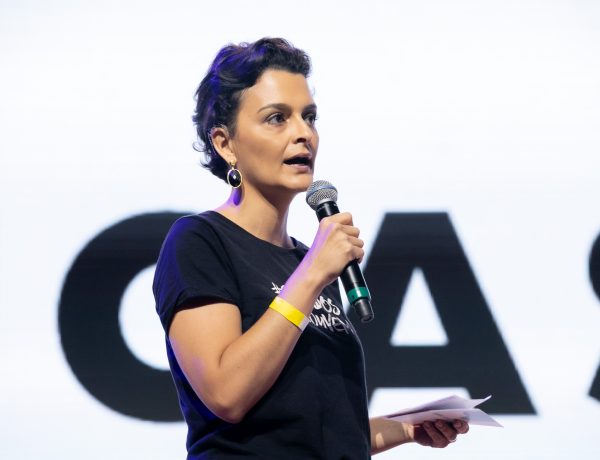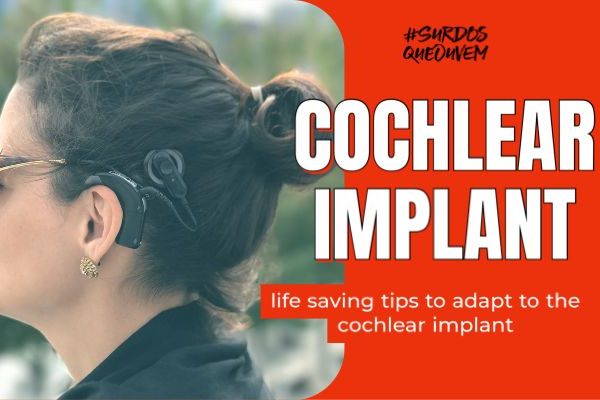More often than not, I hear people saying, “Hearing loss isn’t even that big of a problem.” Of course, the people who say that can hear perfectly well. It seems they can’t hear themselves. I always thought I managed my own hearing loss very well, until I started to hear again.**
Many times, I tried to convince myself everything was okay — my hearing loss wasn’t making itself felt, it wasn’t bothering me, people were not treating me any differently because of it, nobody was saying anything behind my back, etc. I was completely mistaken!
I also spent many years lying to myself about the impact hearing loss had on my life, as if there was none or it was not that big. I only realized it when my hearing loss became severe. Nowadays, I can clearly see the impact hearing loss had on my life long before that.
Top Impacts of Hearing Loss in Our Lives
Here are the emotional and social impacts of hearing loss:
How hearing loss impacts our Safety
If you can’t hear, or can’t hear well, you are in serious trouble when it comes to hearing fire alarms, phones, doorbells, intercoms, garage doors opening, etc. Your house has to undergo adaptations so you can be alone and safe. The social impact of hearing loss revolves around two words: fear and dependence. We fear being alone or in a specific situation and so we depend on others. It’s a cycle that may never break.
How hearing loss impacts our Entertainment
Finding a subtitled version of the film you want to see is a true Mission: Impossible. In Brazil, dubbed films are the norm. When you travel, it is difficult to find subtitled programs on planes and buses. Hotels insist on doing everything over the phone. Staff in stores, restaurants, bookstores, etc., are not trained to help clients with hearing loss — most act as if every person who can’t hear is also unable to speak. Theaters appear simply uninterested in spectators with hearing loss and users of hearing aids and cochlear implants. The social impact of hearing loss in entertainment involves us becoming victims of the lack of accessibility.
How hearing loss impacts our everyday life
In our everyday life, things can become tough. I cannot even begin to list every situation, but let’s try. When we go to the supermarket, we have to lock eyes on the cashier, just in case they talk to us while they process our items. I have been angrily poked by people in line because the cashier was saying something and I did not notice.
When we are waiting our turn at a public office, the doctor’s, the dentist’s, a bank, etc., usually the method is shouting “Next!” to the people in line, a shout we usually don’t hear.
When we take a cab, what if the driver wishes to have a conversation or just ask something? How can you read their lips?
How about being forced to call a special 1-800 line “For those with hearing and speech difficulties,” one of the weirdest and most useless things ever invented?
Every situation in our daily life can and will involve some problem related to hearing loss. The social impact of hearing loss in our everyday lives cannot be measured. There are no words to describe it.
How hearing loss impacts our work
Work is where things get really tense. We have to prove our worth and perform just like our co-workers. People forget that, in the workplace, 90% of everything is communication, exactly our weak spot. Nobody wants to be seen as disabled, or, even worse, as a worker with “selective hearing”, who “plays deaf for show”, who “cannot answer the phone”. There are lots of little things — bordering on harassment — we have to put up with because our co-workers and bosses are not willing to empathize with us or learn about the difficulties of a person with hearing loss. It can be rough.
To hear instructions or our name being called when we are not paying attention, to understand conversations and discussions with various people speaking at the same time, to participate in meetings; things trivial for people who can hear, but which are far more complicated for us. This can make us completely exhausted — as it does sometimes.
The social impact of hearing loss at work has to do with all the unnecessary hardship we go through. Most of the time, problems can be solved if HR makes the necessary adaptations, provides the technology to help us, and informs every worker about our condition.
How hearing loss impacts our education
School and college can be difficult places to be if you have hearing loss. Environments without proper acoustics, the constant, incessant noise, teachers who lack training to deal with students with hearing loss, schools which do not wish to accept students with hearing loss, other students unwilling to help, an unprepared administration who ignores accessibility… Do I need to go on? The social impact of hearing loss in education has to do with a large number of students with hearing loss just giving up. This is very serious.
How hearing loss impacts our Family and Friends
We start to avoid being with people we don’t know. We no longer want to go to parties, dinners, celebrations. We lash out our frustration on those who spend the most time with us. We don’t feel like talking to people. We avoid social gatherings anytime we can. A friend or relative is appointed our official “translator” and becomes burdened with this role. We avoid any situation that can challenge us. We don’t feel safe in our love life; we think the people who are with us in spite of our hearing loss are doing us a great favor. The social impact of hearing loss in our intimate social life has to do with depression and forced isolation, not to mention mental and physical exhaustion.
ANY QUESTIONS?
Paula Pfeifer is a brazilian writer. Two of her books about hearing loss, hearing aids and cochlear implants can be found in english and spanish in Kindle.
Support Paula Pfeifer’s work. She is a hearing rehabilitation activist in Brazil and she is deaf herself – two cochlear implants. You can support here!

RECEBA NOSSAS NOVIDADES NO SEU EMAIL
Ver essa foto no Instagram



No Comments